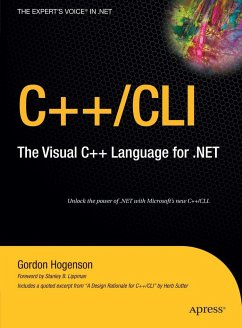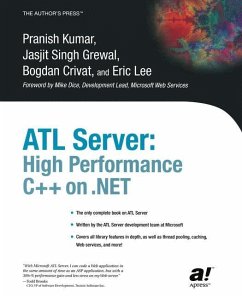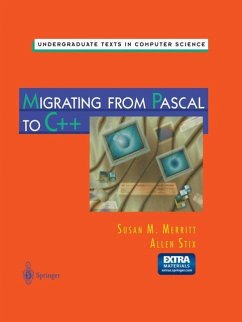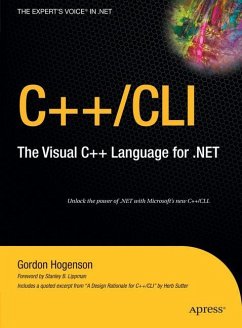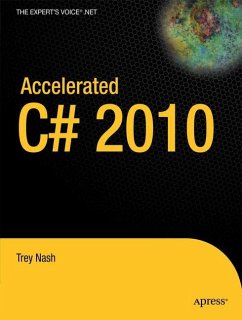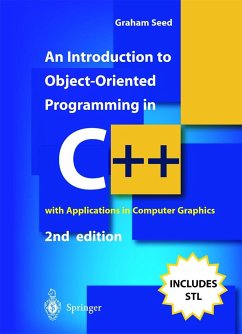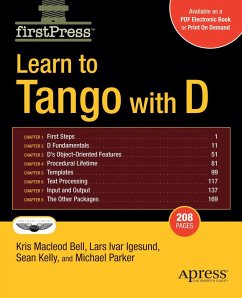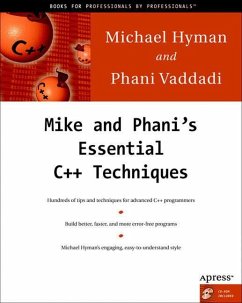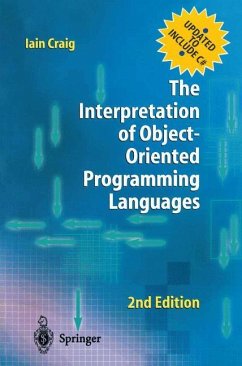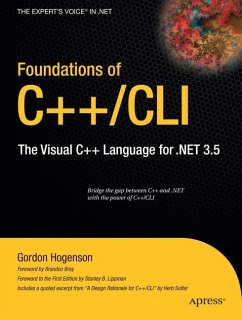
Exploring C++
The Programmer's Introduction to C++

PAYBACK Punkte
19 °P sammeln!
This is a book about learning by doing and is aimed at programmers familiar with programming, but not C++. The key exercises are not simply listed at the end of the chapter, but are integrated into the main text. Readers work hands-on throughout the book. Each lesson poses numerous questions, asking readers to write answers directly in the book. The book includes answers to all questions, so readers can check their work. These exercises are not simple cookbook-style recipes (e.g., "Write a program to do xyz"). Instead, they are explorations-structured labs that guide readers through a series of steps to highlight specific features of C++.
Exploring C++ uses a series of self-directed lessons to divide C++ into bite-sized chunks that you can digest as rapidly as you can swallow them. The book assumes only a basic understanding of fundamental programming concepts (variables, functions, expressions, statements) and requires no prior knowledge of C or any other particular language. It reduces the usually considerable complexity of C++.
The included lessons allow you to learn by doing, as a participant of an interactive education session. You'll master each step in one sitting before you proceed to the next. Author Ray Lischner has designed questions to promote learning new material. And by responding to questions throughout the text, you'll be engaged every step of the way.
The included lessons allow you to learn by doing, as a participant of an interactive education session. You'll master each step in one sitting before you proceed to the next. Author Ray Lischner has designed questions to promote learning new material. And by responding to questions throughout the text, you'll be engaged every step of the way.





